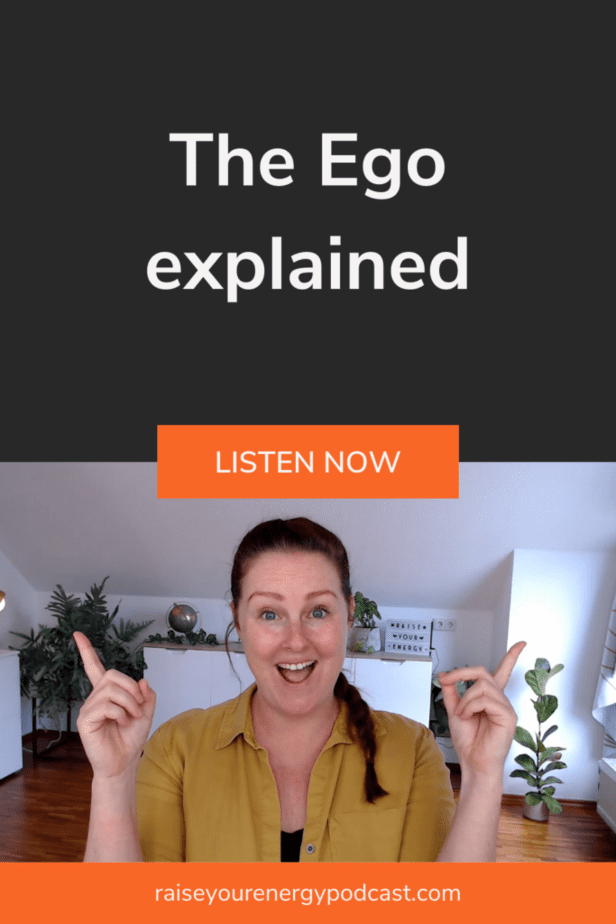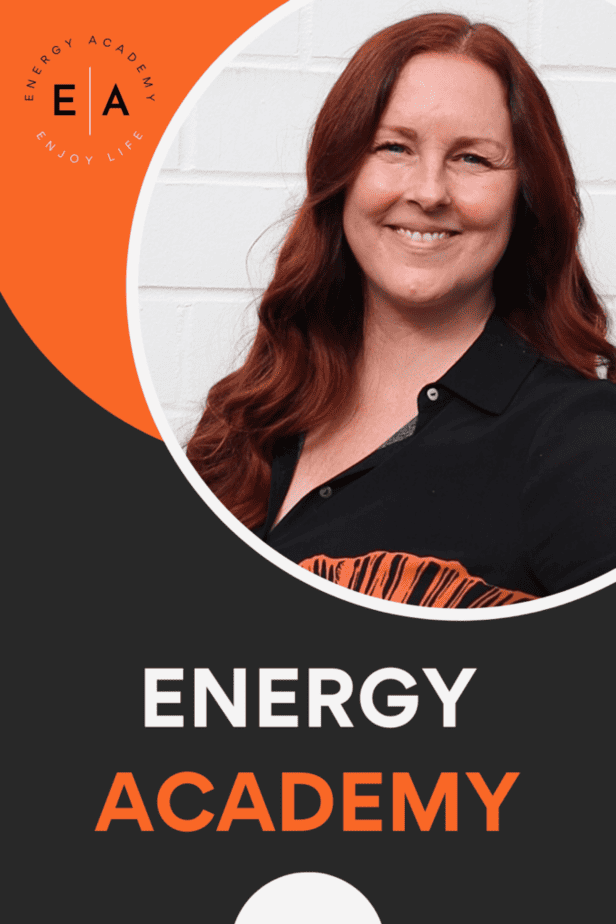The Ego explained E47
June 21, 2022

SUBSCRIBE TO THE PODCAST: Apple Podcasts | Spotify | Google Podcast | Goodpods
In the last few months I have started to understand more about what the Ego is but if somebody would ask me out of the blue, I don’t think I could give a clear answer or description of what the Ego actually is. That’s why I created this episode for you – and myself. So if you, like me, are not 100% sure what the Ego means to you, keep reading!
RATHER WATCH THAN LISTEN/READ? CLICK PLAY!
These days the word Ego has a lot of meanings and viewpoints. Some people see their Ego as their strength, their success, the self that deserves success, money and power. On the other end of the spectrum, you find people who describe the Ego as being selfish, egoistic and self-centred. They don’t aspire to have an Ego or associate with their Ego as they see it as something negative and shameful.
I can see both sides and all the shades of grey in-between. I can understand both sides of the explanations of the Ego. But even if I can understand them, I don’t associate myself anymore with one or the other. Through my self-development journey, I am learning more and more about the Ego. That it is not like that at all.
Let’s look at my definition of the Ego.
The Ego is part of our personality, of our identity. I mentioned in a recent episode that our personality is a collection of everything we have experienced, learned and collected throughout our life (Episode 44). And the Ego is the part of the human personality that we experience as ourselves. As the “I”, in relation to our environment. The word Ego is Latin and translates into the word “I”. When we talk about ourselves, we use the word “I” and that is our Ego. Our personality is a collection of so many different things that were formed over the duration of our life. And the Ego is the current expression of it. It’s the current picture that we have of ourselves and the picture that we portray in our environment.
And the Ego is a necessary part of us
We cannot get rid ourselves of our Ego. It is a part of being human and existing in this physical world. If we would not have an Ego, we would be nobody, we would not have anything to say.
“It’s like having a completely wiped computer with no software, no memory storage and no programs. You turn it on and nothing happens, you can’t work with such a computer, it’s useless.”
And that would be the same for us without our Ego. We would be of no use in this dimension. Therefore the Ego is a part of our existence that is necessary.
So the one part of people that don’t like to associate themselves with having an Ego as they see it as a negative trait is working against something that is not possible to disappear. What they are against is a specific version of the Ego that represents traits, behaviours and actions that are classified as egoistic and selfish. That’s really what they dislike: People that are just out for themselves and do not care about anyone else.
But they have an Ego, too. Every human has one. And as I always say, we are the creators of our life. Therefore we are as well the creators of our Ego. Our Ego can be what we want it to be.
Let’s look closer at how our Ego is built over time and how it influences our lives.
By the time we are 35 years old, 95% of who we are is fully created and automated. That fully formed personality or identity consists of thought patterns we created, repetitive habits, programmed beliefs, triggered emotions and memorized behaviours. All of it comes from our past. We collected it during the length of our lives, which means it is all a record of our past.
We are so programmed and collected enough life experiences that we can live our lives on autopilot. And a lot of us do exactly that. You don’t have to think that much anymore, the days look pretty much the same, and even seasonal or annual events are the same.
Adjust our Ego
And that makes it that much harder if we wake up from our lives and ask ourselves: Is that all there is? If we want to adjust our Ego and who we portray to the world, we will need to work on it. Our body and our conscious analytical mind crave the past, they crave the known. They don’t like change or the unknown, so they will keep us stuck in the record of our past.
That does not mean we have to live with our Ego for the rest of our lives. No, not at all. We can decide to change parts of it. And we can decide to let go of certain traits or behaviours. We can decide to let go of trauma from the past that is still influencing our Ego, our identity and our lives today.
So when we look at people that are celebrating their Ego and enjoy being selfish and self-centred, then that’s their decision on how to live their lives. They decide on their set of values and that success, money and power are their priority number one in life. But this is just a version of an Ego – they can decide to change that Ego to be more selfless, helpful and caring. If they wanted to. Remember, we are the creators of our lives.
The Ego represents who you currently are.
The thoughts that you currently have, the beliefs you base your life on, your actions and behaviours, your values, and your mission. The result of this mix is your Ego. The same as you keep changing when you grow up, you can still change even when you are older. It’s not going to be that easy but you can change the ingredients of your Ego. You can start small and make adjustments that are slightly easier. And with that experience and practice, you can move to bigger topics that you would like to change.
In other episodes I talk in detail about how to change. I am going to provide you with the links so you can listen to them if you are interested to learn more about the process of change (Episode 44 and Episode 45).
For today I wanted you to understand the Ego in itself and what it actually is – and what it isn’t. There are a lot of misconceptions about the Ego out there and that creates a lot of confusion. But I hope I was able to shine a light on the Ego. That both of us, you and me, are clearer now on what our Ego is and what it can be. It’s our personal choice.
I personally work on my Ego now all the time.
I have worked on changing a lot of my habits, beliefs and behaviours to overcome my burnout. If I would have not gone deep into my programming and worked on the root cause of it, I would just end up in burnout again at some point. But I have gone deep. It was hard and still sometimes is – old patterns and habits still come up now and then. But they get less powerful. They are not as loud and as overpowering and with time I know they will disappear. That’s why I keep working on my Ego every day.
And I keep finding new parts that I want to let go of (Episode 30 and Episode 42). Emotional triggers that I collected in the past and that I am now tired of (Episode 36). I ask myself meaningful questions to discover them. If necessary I get some support from a specialist to uncover them, so I can work on the right triggers, buttons and switches.
“And I do all of that work so I can change my life to the better, to become a better version of myself, closer to who I really am and who I really want to portray to this world.”
You can do the same. It’s a question of what you want to do with your life. Live on autopilot for the rest of your life or grow, develop and collect new and exciting experiences? It’s your choice.
Two easy ways to show your appreciation!
If you found value in today’s episode, here’s what you can do to show your support:
First, consider making a donation to the podcast. Every little bit helps to cover the costs of producing and hosting the show. And ensures that I can continue to bring you the latest insights and opinions on the topic of energy and improving your life.
Second, leave a rating and review on Apple Podcasts. This helps boost the podcast’s visibility and attract new listeners, which helps me create more tailored content for you to enjoy.
So whether you choose to donate, leave a rating and review, or both, know that you’re an integral part of my vision. You are helping everyone who struggles with burnout or high-stress levels to experience how awesome their life can be. So, thank you for your support!
You Might Also Like
- Stop living your life on autopilot! Episode 54
- How to mentally rehearse yourself a new life? Episode 75
- People Pleasing stops you from being your True Self Episode 86
Join the Energy Academy
Feel fully ENERGIZED at the end of your day without working harder and longer. Make the right changes to raise your energy levels to new heights.
Learn the process of change and apply it to anything in your life. Never struggle again to overcome habits and behaviours that suck the energy out of your life!
Follow me on social media
